A review and sample photos of the Leica Summilux-M 35mm f/1.4 ASPH. (Titanium color) used with a rangefinder film camera and a digital rangefinder camera.
- Please see the disclaimer regarding advertising here.
- Italicized links in the text are advertisement links that take you to other sites.
Table of contents
Gallery
The following cameras were used for the sample photos:
- LEICA M6 +FUJIFILM VALVIA50 +NIKON COOLSCAN-V
- LEICA M10
- LEICA M-P typ240
- LEICA M9
Review
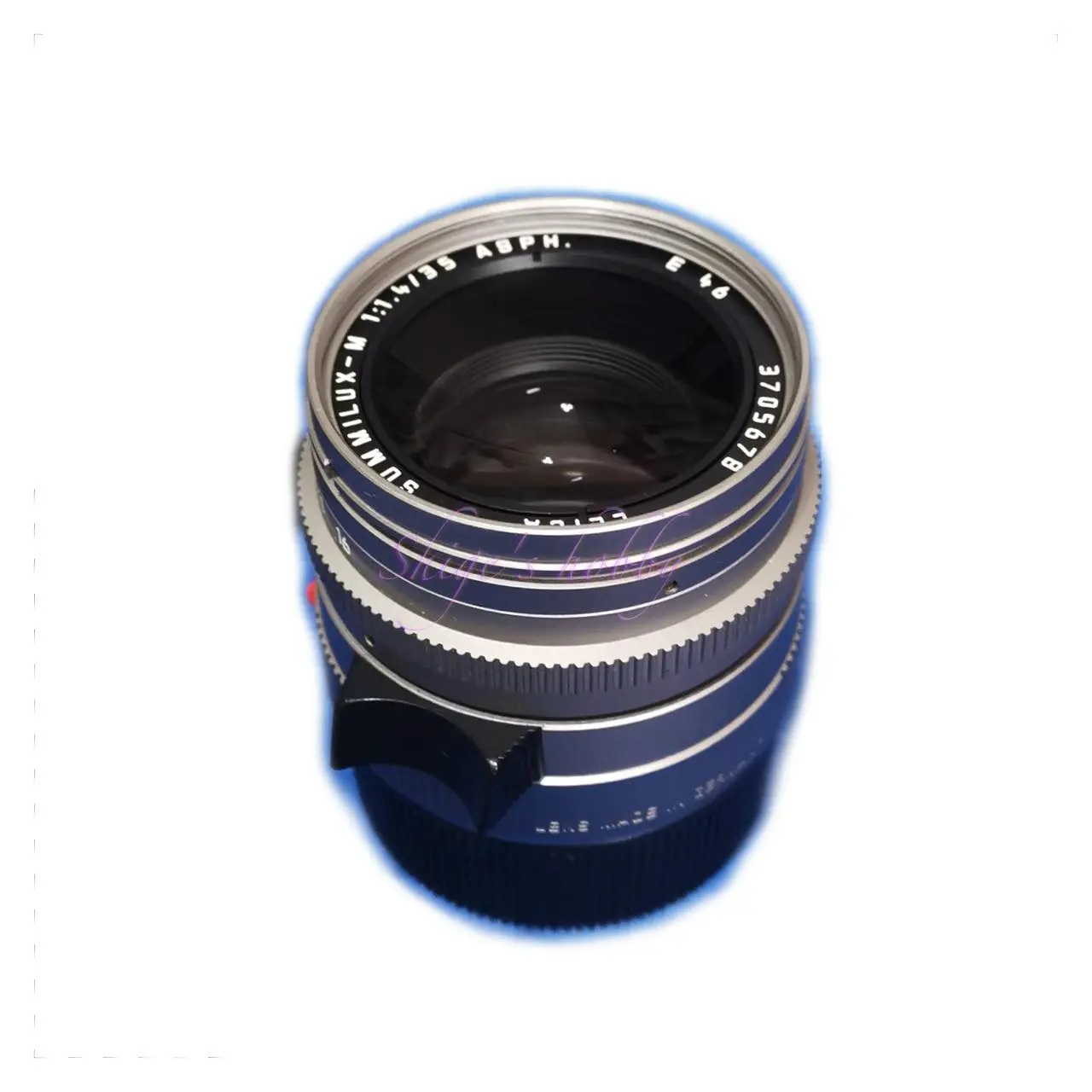
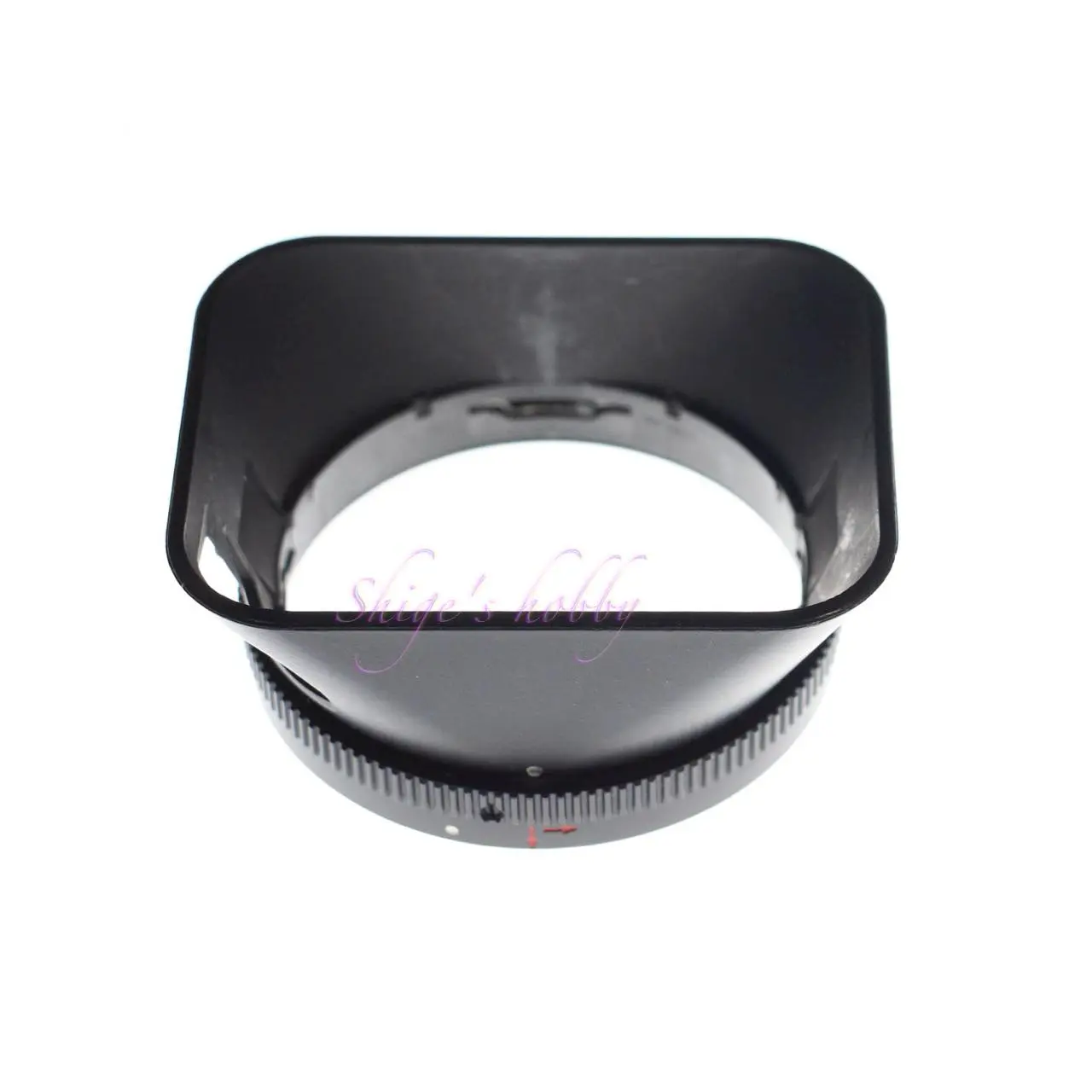
1.Overview
The Summilux 35mm f/1.4 ASPH. was a Leica M-mount wide-angle lens with a focal length of 35mm, produced from 1993 to 2010.
The main specifications are as follows; details are provided in the “Specifications and Considerations” section.
- Aperture: 1.4
- Lens Construction: 9 elements in 5 groups
- 1 aspherical lens element
- Aperture Blades: 9
- Minimum Focus Distance: 0.7m
- Rangefinder Coupling for Leica M Rangefinder Cameras: 0.7m
- Hood: 12589
Because the mount shape is new, it is possible to officially modify it by adding a 6-bit code for lens recognition.
It has been released in three colors, black, silver, and titanium, and a total of nearly 20,000 units have been produced. From the list, it can be seen that the silver version is around 3,000 to 4,000, and the titanium version is around 1,000 to 2,000.
The lens is made up of a concave front lens, symmetrical with four elements in the front group and four in the rear group excluding the aspherical lens. New models after this lens have adopted a floating mechanism, which is said to improve image quality when shooting close up.
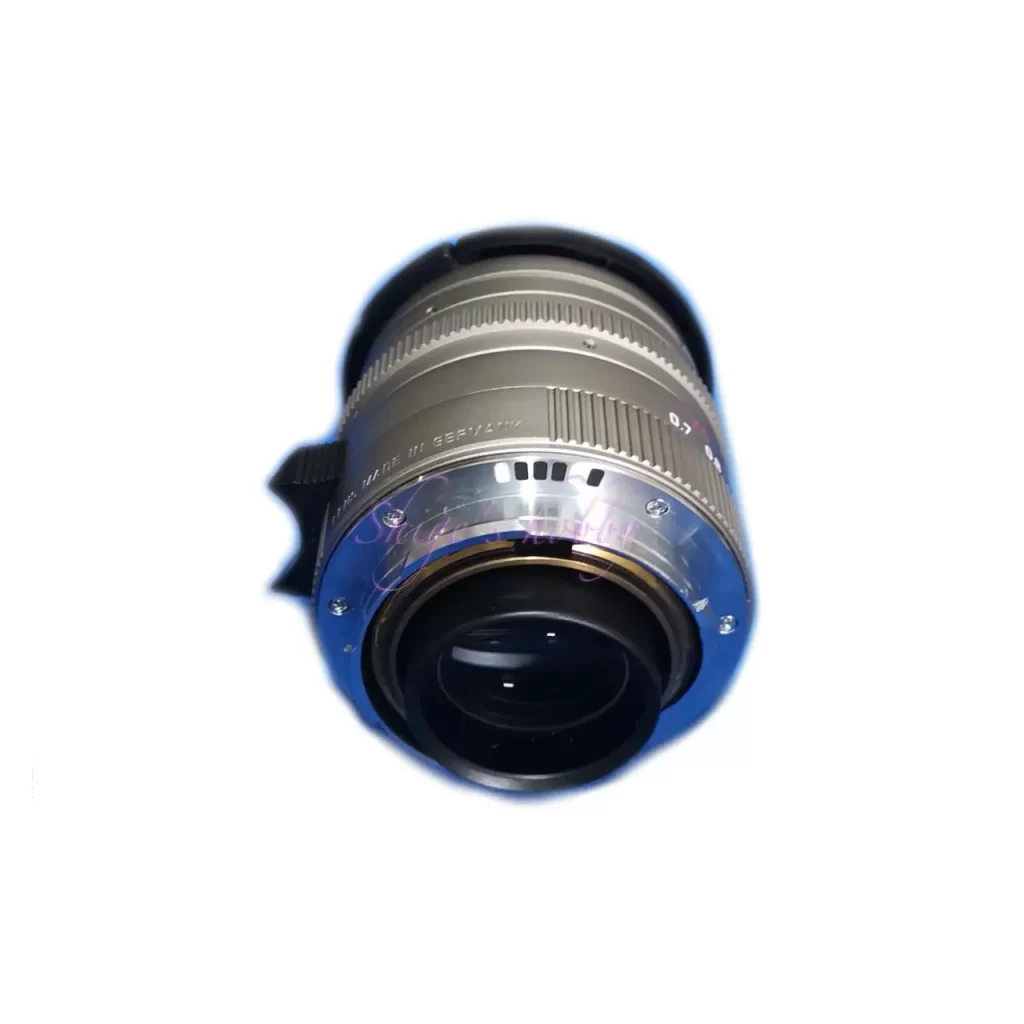
2.Usability
Introducing the second-generation Summilux 35mm f/1.4 ASPH. aspherical lens with a hook-mounted hood (12589), a titanium-colored version of the older model.
The image resolution is excellent even at wide open aperture, with vivid colors and flawless rendering with well-corrected distortion and curvature, creating a similar feel to the 50mm f/1.4 ASPH.
Looking at past photo data, it seems I often took this lens out on rainy days, and I feel it is a lens that captures the glossy look of rain well.
It’s a lens I’ve used quite a lot, and I have a lot of sentimental attachment to it, having used it with the M6 and film, and on the 35mm full-frame sensor cameras LEICA M9, LEICA M typ240, LEICA M-P typ240, and LEICA M10, and the mirrorless camera LEICA T typ701.
■Film rangefinder camera
When used with a film camera and reversal film, it produces images that rival the vibrant colors of the VELVIA 50. It produces consistent images across the entire frame, making it suitable for landscape photography as well.
The M6’s standard 0.72x viewfinder has a viewfinder frame that covers a wide-angle range from 28mm to 135mm, and when using this lens, the superimposed image focus adjustment was relatively accurate, even at widest apertures. However, since the M-series Leica has a maximum shutter speed of 1/1000, this was not enough in scenes with sunlight, so I often had to use a narrower aperture.
The LEICA M6 TTL uses a 0.85x viewfinder frame, so focusing using the superimposed image in the viewfinder was more accurate than with the 0.72x viewfinder, and I often used it at widest apertures in dimly lit scenes.
Cameras with 0.85x viewfinders have a viewfinder frame with a maximum angle of 35mm, covering focal lengths from 35mm to 135mm.
The 0.58x viewfinder, the lowest magnification among M-series Leica cameras, has a 28mm to 90mm viewfinder frame and is not particularly suitable for use with large-diameter lenses.
The KONICA HEXAR-RF has a 0.68x viewfinder that prioritizes the wide-angle side and can use a high-speed shutter of 1/4000, allowing for use with large-diameter lenses at wide open apertures. However, because the viewfinder magnification is low, when using large-diameter lenses at wide open apertures, it can be difficult to focus due to the double image overlap unless you are accustomed to it.
While the HEXAR-RF can use a fast shutter speed of 1/4000, the inconsistency caused by the low viewfinder magnification can be disappointing at times.
■Digital rangefinder camera
The LEICA M10 and M-P typ240 are digital rangefinder cameras equipped with a 35mm full-frame 24-megapixel sensor, while the LEICA M9 is equipped with a 35mm full-frame 18-megapixel sensor. Both cameras allow you to shoot with the same shooting range as film.
Digital cameras with around 20 megapixels have higher resolution than film, so while some lenses can produce noticeable rendering at the edges, the SUMMILUX M 35mm, which uses this aspherical lens, produces stable rendering across the entire image, and there are almost no noticeable vignetting.
This lens is well-suited to digital cameras, and this is proven by the fact that the basic lens construction has remained unchanged even with model changes.
Although not used with this lens, the LEICA M8, which is equipped with an APS-H-size 10-megapixel image sensor, has a shooting focal length equivalent to 47mm, which is the actual focal length of 35mm multiplied by a conversion factor of 1.33 derived from the sensor size, and the captured image is recorded with the peripheral areas of the lens cut off (cropped). As a result, the overall image will appear more balanced than images taken with a camera equipped with a 35mm full-frame sensor.
This is the same as when an image taken with a 35mm full-frame sensor camera is cropped, so you can see the effect by actually cropping it.
Also, when using this lens with the LEICA M8 series, the viewfinder frame is displayed equivalent to 47mm, so there is no need to pay special attention to understanding the shooting range. If using an external viewfinder, a 50mm external viewfinder, which is close to the 47mm equivalent, will be used.
■ Mirrorless camera
The LEICA T typ701 is a mirrorless camera equipped with an APS-C 16-megapixel sensor. Due to its small sensor size, the focal length is 1.5 times the actual focal length, providing a shooting range similar to that of a standard lens equivalent to 35mm * 1.5 = 52.5mm.
Mirrorless cameras allow you to accurately focus at any desired location by using the rear LCD or electronic viewfinder.
To achieve more accurate focus, after composing the shot, move the magnified display frame to the focus position and check, then correct any deviations. It is best to then shoot without changing the composition after adjusting the focus. This is because with a lens with a bright aperture value of f/1.4, the focus position can shift slightly when the camera’s position changes as the composition is moved.
3.Summary
In conclusion, to summarize the Summilux 35mm f/1.4 ASPH. is a lens that delivers calm images with both film and digital cameras, with a good balance of resolution and emotional depiction.
Of all the lenses for rangefinder cameras, this was one that I was close to owning, but I ultimately let it go and kept the spherical SUMMILUX M 35mm, which I preferred for its compact size and lens barrel design.
The reason I let this lens go was that compared to the spherical SUMMILUX 35mm, it offered better images even at wide open apertures and a minimum focusing distance of 0.7m, allowing for close-up shooting. Keeping the aspherical SUMMILUX made sense as a photography tool, but the deciding factors were the large lens barrel, its flat, unpromising design, and the light, unsatisfactory feel of the helicoid. Another factor was that I already own the Leica R-mount version of the large SUMMILUX 35mm.
Specifications, considerations, etc.
The Summilux-M 35mm has evolved from a spherical type (1960), hand-polished aspherical type (1988), aspherical type (1993), aspherical type with floating element (2010), and aspherical type with built-in hood and floating element (2022).
The spherical type is introduced on a separate page, so here we will only discuss the aspherical type.
The Summilux-M 35mm Aspherical, the first aspherical type released in 1998, is easy to identify because it says “Aspherical” on the lens nameplate. It is quite expensive even on the used market, so you will easily recognize it if you find one. In the early 2010s, I came across Summilux-M with the “ASPHERICAL” label at a price that I could just about afford, but after passing on two, it is now the 2020s and they are no longer affordable. Even if you own one, it is difficult to decide when to sell it, so I try to think of the things I missed out on as just a passing opportunity.
The second-generation aspherical lens featured here is available in three colors and has been in production for a long time.
In 2010, a new lens was released, adopting a floating element in the focusing lens group and changing the hood from a hook type to a screw-on type. While floating elements are said to improve imaging performance in close-up photography, this is difficult to determine in normal photography due to lighting conditions, and it is thought that the difference will be difficult to discern without comparing under identical lighting conditions, such as in studio photography.
The 2022 renewal was extensive, and Leica has responded to modern demands. The minimum focusing distance was shortened to 0.4m for use with mirrorless cameras, and the lens hood was redesigned to be built-in and retracted, similar to the Summilux-M 50mm ASPH., where it is screwed into place. The number of aperture blades was also increased to 11. The lens construction remains unchanged from the 2010 model, and the mechanism appears to have been refined in line with the evolution of the lens coating and the change in the lens barrel. Since the 2020s, lens prices have been rising due to factors such as the depreciation of the Japanese currency, and the price of lenses in Japan in 2024 will be approximately 1 million yen.
| Items | SUMMILUX ASPHERICAL | SUMMILUX ASPH.2nd | SUMMILUX ASPH.3rd | SUMMILUX ASPH.4th |
| Focal length(mm) | 35 | 35 | 35 | 35 |
| Max aperture | 1.4 | 1.4 | 1.4 | 1.4 |
| Min aperture | 16 | 16 | 16 | 16 |
| Lens Construction | 9 | 9 | 9 | 11 |
| Aperture blade | 5群9枚 | 5群9枚 | 5群9枚 | 5群9枚 |
| Min distance(m) | 0.7 | 0.7 | 0.7 | 0.4 |
| Lens length(mm) | – | 46.2 | 46 | 46 |
| Max diameter(mm) | – | 53 | 56 | 58 |
| Filter Size(mm) | E46 | E46 | E46 | E46 |
| Lens hood | Black 300 | Black 250 Silver,Titan 415 | Black 320 | Black 338 Silver 338 |
| Weight(g) | 12587 | 12589 | Screwed | Build in |
| Release date | LEICA M | LEICA M | LEICA M | LEICA M |
| Production numbers | 1988 | 1993 | 2010 | 2022 |
| Price(Yen/No-tax) | 1988-1993 4,000 | 1993-2005 18,404 | – | – |
| Floating element | none | none | exist | exist |
Comparison with DISTAGON T* 35mm F1.4 ZM
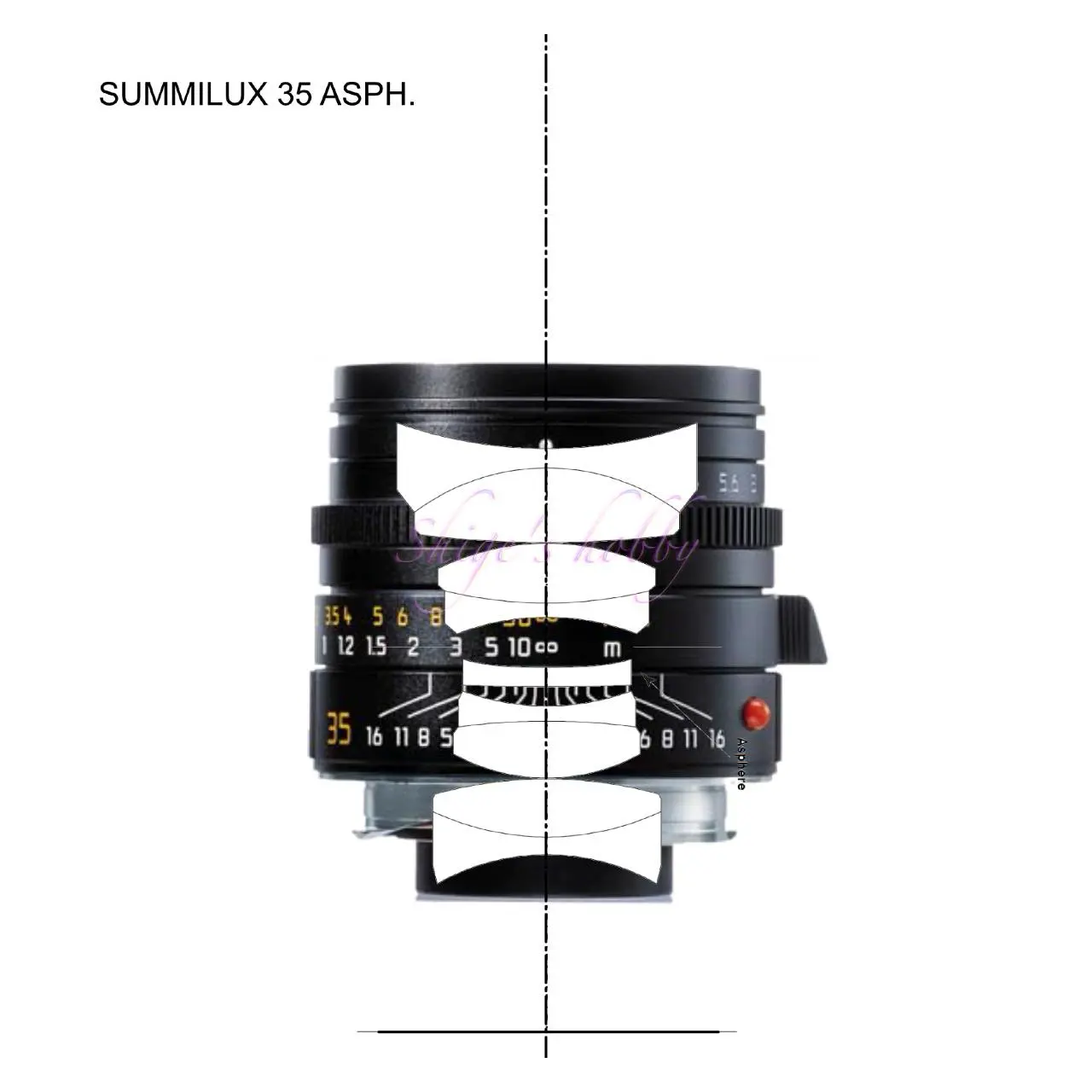
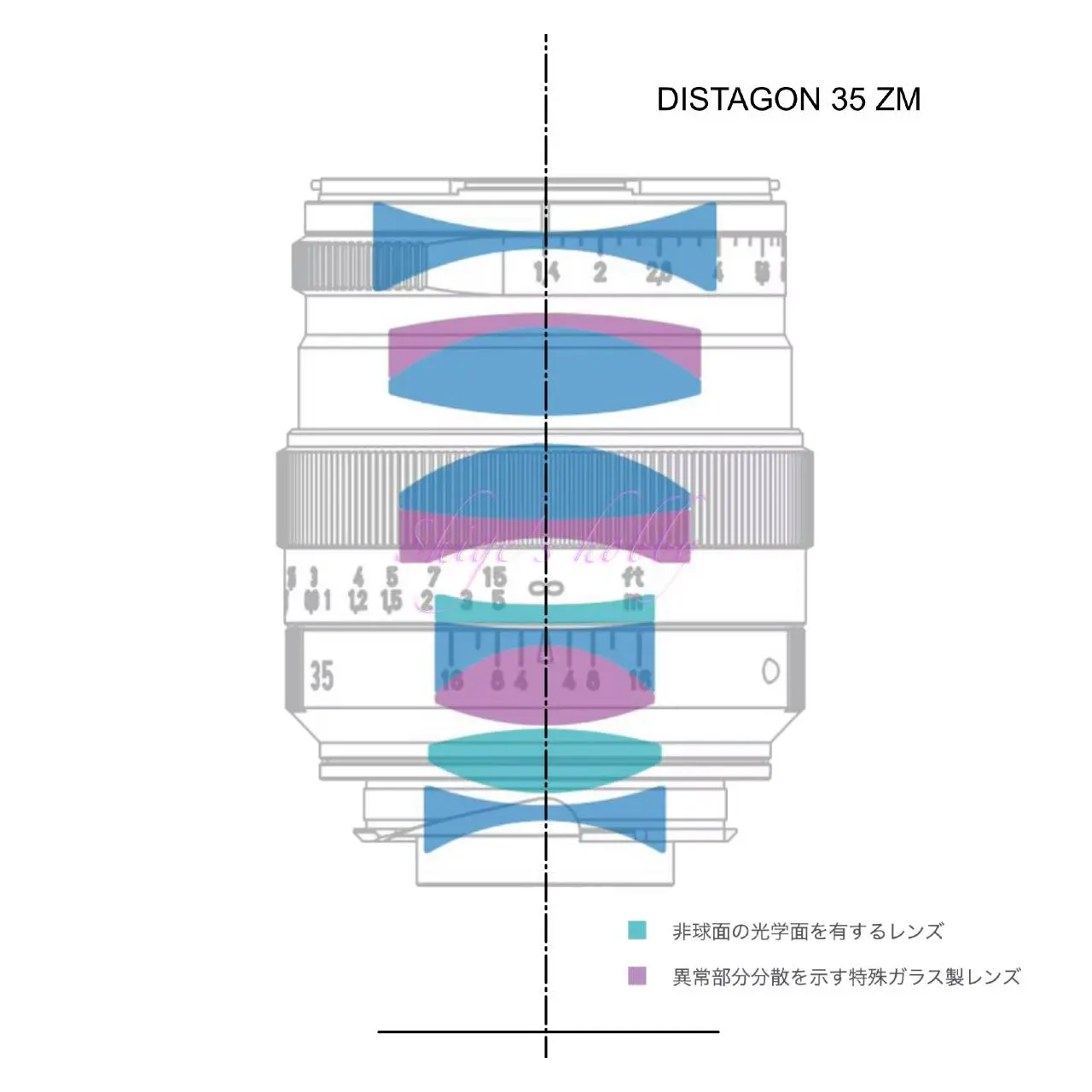
Comparing the SUMMILUX M 35mm ASPH. and the DISTAGON T* 35mm, you can clearly see how large the DISTAGON is.
It’s small compared to the 35mm F1.4 for SLR cameras, but it’s a fairly large lens for a rangefinder camera. When attached to a rangefinder camera, the SUMMILUX M 35mm ASPH. also feels like a large lens, so the size of the DISTAGON no longer looks like a lens for a rangefinder camera.
Reference links
- Leica Wiki 「35mm f/1.4 ASPH Summilux-M」
- SUMMILUX 35mm ASPH. 2022 Official Web-site
- SUMMILUX M 35mm ASPH. Using report(Japanese)
- SUMMILUX M 35mm ASPH. 2010 ver Specification PDF
- SUMMILUX M 35mm ASPH. 1993 ver Specification PDF
Affiliate links
- Please see the disclaimer regarding advertising here.
- Italicized links in the text are advertisement links that take you to other sites.

Amazon Prime Sale
Update history
- 2025.11.13
- 2024.11.6
- 2024.03.02:Update article
- 2022.09.17:First draft

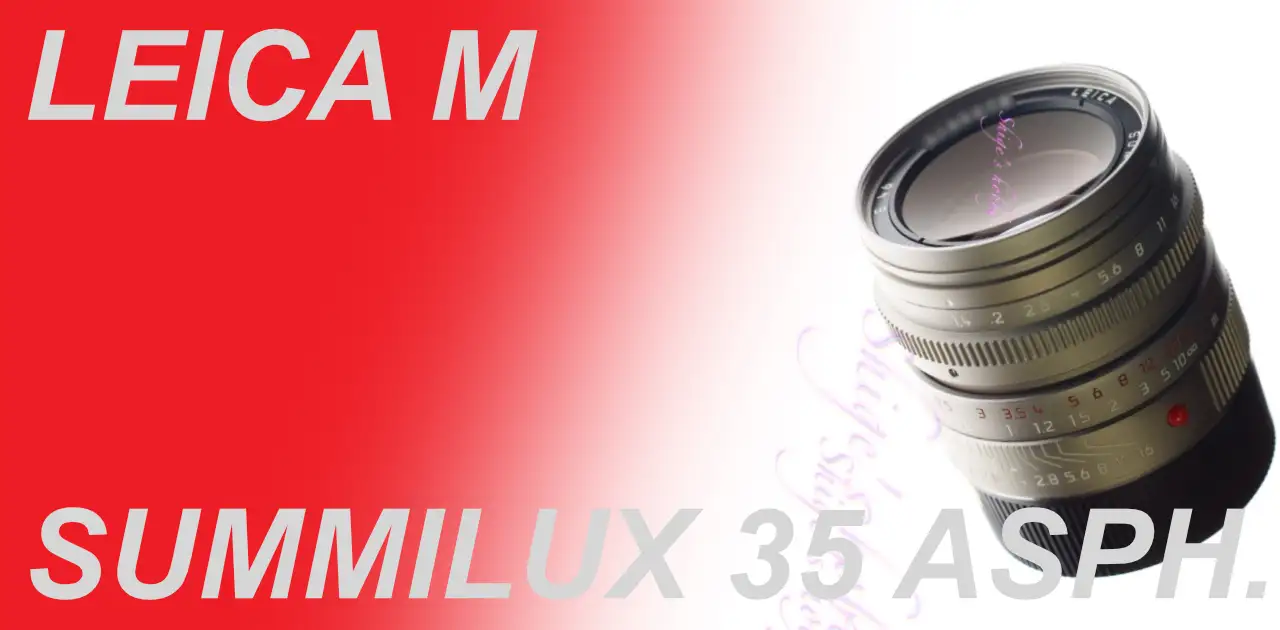

Be First to Comment